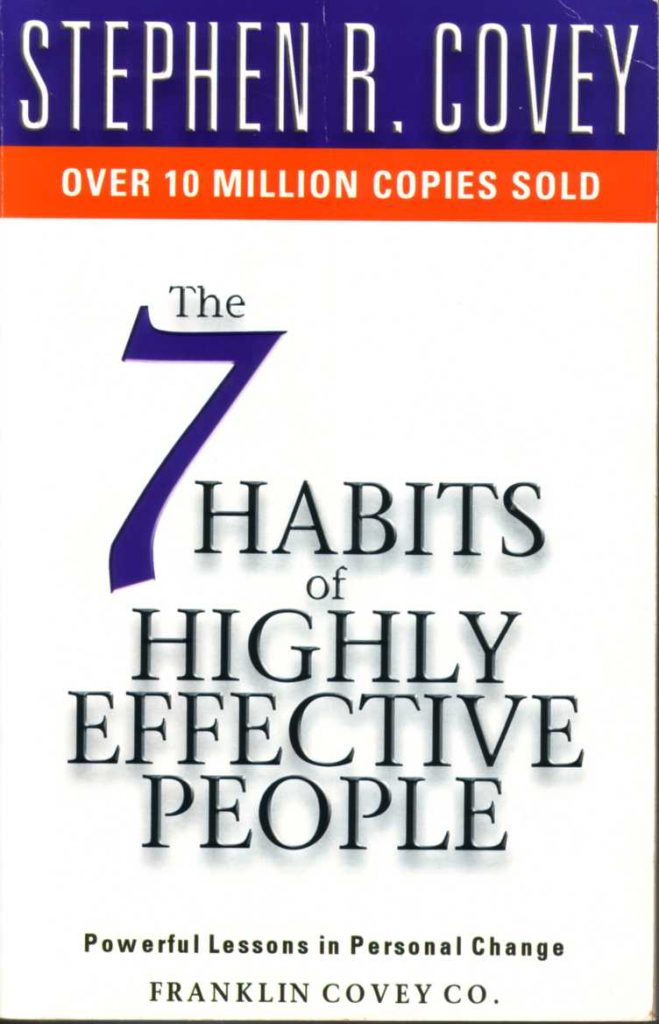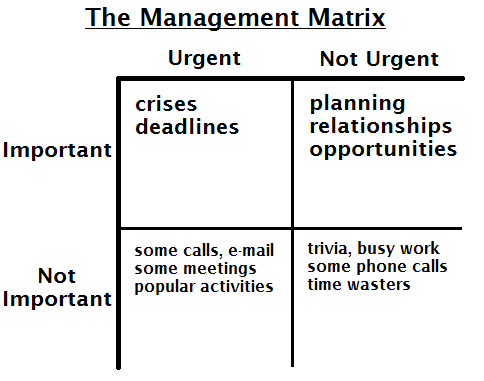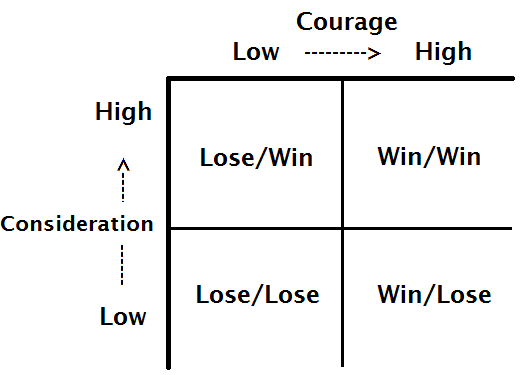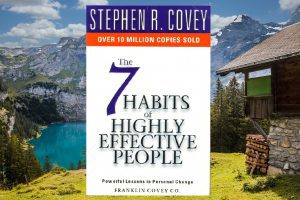This book offers a structured approach to improving your life. The habits improve your organisational skills, people skills and critical thinking, which can be used in both career and personal life. They are lessons in personal change, which can be practised and tackled one habit at a time.
Book thirteen is…
The 7 Habits of Highly Effective People by Stephen Covey

PRO TIP: Take notes! When you read a book, use a blank sheet of paper as a bookmark. Write down any interesting facts and information from the book. This condenses a whole book into 3-4 pages of key notes that are important and relevant to you.
My Notes
- It’s important not only to read information but to absorb and apply it. A tip is to read the material as if you are going to teach it to someone else in 48 hours.
- Life is Stimulus –> Response. We are free to choose the response, based on self-awareness, imagination, conscience and independent will. To put it another way, someone’s behaviour might be insulting, but it is up to us whether we choose to be insulted.
Habit 1 – Be Proactive
- Don’t blame others for mistakes or behaviours. Reaction is a choice, so make your choices positive and not limited.
- Be proactive rather than reactive, don’t wait for life to happen to you.
- It’s negative to obsess over things out of your control. Instead, focus on things you can change in your every day life.
- Select a problem you have in life and determine the degree of control you have over it. How would you proactively handle it?
Habit 2 – Begin With The End In Mind
- Exercise: Visualise your funeral, and what you’d like those closest to you to say about your life. Use that as an end point to work back from in your decisions. Use this to write a personal mission statement for how you wish your life to unfold.
- People make their lives centred mainly around one area: family, money, work, the self. This is done at the expense of other areas.
- Exercise:
- Identify your roles in life to split into projects. Husband, father, son, personal development, worker. Select 8-10 roles and label them.
- Select a few goals to achieve in each role at the start of the week.
- Organise those goals into a working week template
- Manage each day as it comes up (with regards to unexpected events in the week).
Habit 3- Put First Things First
- Do something for others based on what they see value in, not what you see value in.
- Duplicity or “two faced” behaviour is dangerous. Complaining about someone who isn’t present will reduce your integrity in the eyes of those present. The same is true with gossip and secrets.
- Successful people do important tasks even if they don’t like them, because they are a function of their values rather than a function of their desires and impulses. It requires willpower.

- The management matrix (above) is split into quadrants. If you have an external centre, i.e. your main focus in life is family or spouse, you will spend a lot of time doing “urgent” tasks. That’s not ideal as you are always reacting to events (note habit 1 was to be proactive).
- The majority of time should be spent in Important – Not Urgent. These are tasks that a lot of people put off until they are Important – Urgent. With good vision and planning, Important – Urgent should be kept empty.
- The best approach is to organise your life on a weekly basis. Daily is too short term, and a lot can change if you plan out a month.
Habit 4 – Think Win-Win

- Look for mutually beneficial solutions in your relationships, a “win-win”.
- An example of lose-lose is someone sabotaging their own happiness in order to negatively affect someone else.
- Lose/Win are people pleasers, who lack courage so are happy to be submissive and let others get their way.
- Win/Lose lack consideration and are determined to win regardless of who they hurt.
- Scarcity Mentality is assuming life is a zero sum game. That is, someone’s success has to come at the expense of others and it’s not possible for everyone to be happy. These people can’t find joy in others success, as they feel it is somehow hurting them. They can secretly hope for others misfortune.
- Abundance Mentality means you share in others success, and believe there is plenty to go around.
Habit 5 – Seek First To Understand, Then To Be Understood
- Seek first to understand another person before giving your opinion or point of view.
- Truly listen, not just waiting for your turn to speak, and aim to be empathetic.
- Get inside their frame of reference, see the world as they do, understand how they feel. Do this without comparing it all to yourself (the autobiographical mindset).
- 10% of communication is what we say, 30% how we say it, and 60% is body language.
- We tend to listen in one of four ways:
- Evaluate – We agree or disagree
- Probe – We ask questions from our own frame of reference
- Advise – We give counsel based on our own experience
- Interpret – We try to figure out people’s motives and behaviour based on our own motives and behaviour.
- The four stages of response to a statement.
- Mimicking – literally repeat back what they say.
- Rephrase content – Put their meaning into your own words
- Reflect feeling – Interpret how the person feels.
- Rephrase and reflect. Include both how they feel and the context they used.
- An example of 3. and 4. would be your partner complaining about people not pulling their weight in the office. Reflect feeling would be to say “that sounds frustrating”, with rephrase it would be “it must be frustrating that people aren’t working as hard as you”.
- If you are then seeking to be understood, it must be sequential.
- First is Ethos: your credibility, integrity, competency.
- Second is Pathos: your feeling and empathetic side
- Third is Logos: your reasoning and logic.
- When people are making presentations to convince others, they normally start the wrong way round, beginning with logic. It’s important to show you understand where they’re coming from first, and to finish with logic and reasoning.
“The person who doesn’t read is no better off than the person who can’t read”
Habit 6 – Synergise
- I skimmed this chapter in all honesty, it didn’t seem helpful. The subject was on co-operation and was filled with anecdotes on the authors personal life. If you are in a team, try to be greater than the sum of your parts.
Habit 7 – Sharpen The Saw
- This is simply to follow a cycle of improvement. To read this (or any) book is not enough, you must apply the principles continuously.
- All areas of life interact, improving your health will help with work, as will a happier social life.
- There is an upward spiral of Learn – Commit – Do, so don’t simply learn things and not apply them.

